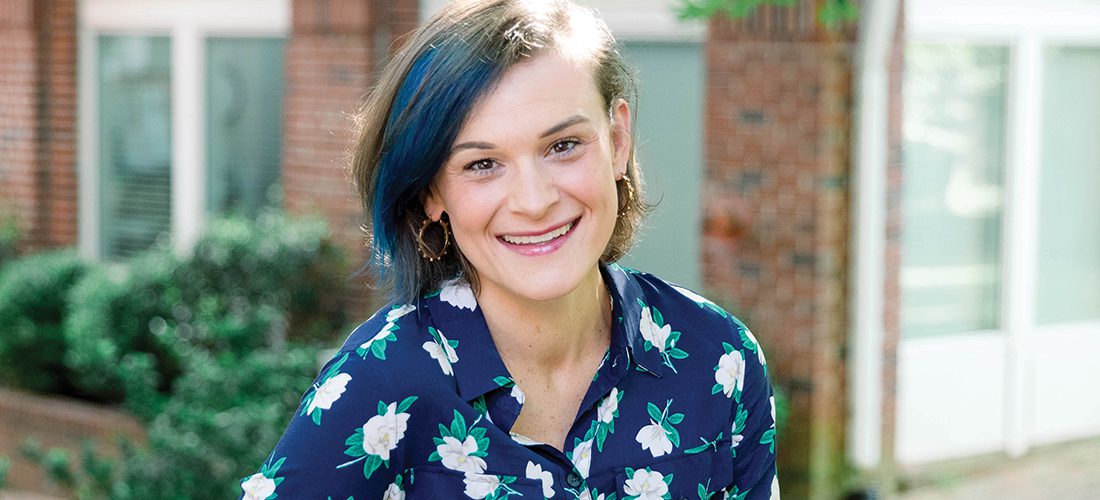Well + wise: Cultivating curiosity
February 28, 2024

How do we make meaning when big, existential thoughts and questions feel overwhelming?
by Juliet Lam Kuehnle
Many of us grapple with existential questions like, “Why do bad things happen?” or “What is the point of all of this anyway?” These ponderings can feel simultaneously big, ambiguous and intimidating. And, they’re totally normal. Questions like these allow us to reflect on our lives, gain perspective and grasp a better understanding of ourselves and the world around us. We shouldn’t stifle our innate curiosity, though it can help to have an idea of what to do with the potential overwhelm that can come from these questions.
It’s important to consider if anything in particular has triggered these existential questions. Perhaps you’ve experienced a shift in identity, a traumatic experience or a life transition, or you’re feeling stuck. If there is a catalyst for these thoughts, you can try to tease out what you’re specifically learning, what might be unfolding before you, and seek appropriate support. Even when you don’t know the catalyst, bringing an attitude of curiosity can help you tolerate any uncertainty as you learn to accept and get comfortable with the unknown.
When you feel untethered, it can help to ensure you’re living aligned with your values. Identifying your personal values (and not just adhering to society’s, parents’ or peers’ values) can help give you a sense of meaning. Your values help guide your choices, actions and priorities. To identify your core values, consider times when you were most proud or fulfilled and notice what you were doing. When you are clear on your values, you know what’s important, the type of person you aim to be, and how you want to be in the world. This will help you feel more grounded and anchored.
You can be more intentional about finding purpose in your life to help the potential spiral that can result from existential angst. Engaging in a diverse array of experiences will tap into your strengths and provide teaching opportunities along the way. When you can connect these interests to something greater than yourself, you will feel a sense of belonging and contribution. This is why volunteering is so powerful and rewarding — connecting with and supporting others provides meaning and purpose.
While existential questions may feel overwhelming, they’re important to reflect on — it’s a sign of our advanced cognitive abilities and meaning-making that makes us human.
Juliet spoke with Danielle Hughes, a licensed social worker and a spiritual director in training. Below are excerpts from the interview, lightly edited.
Why is your business named Cultivate Charlotte?
Humans are always cultivating something, and we can pay attention to what we’re cultivating. I want to bring about the sense of empowerment that we can choose what we cultivate in ourselves and our lives.
We have more agency than we might realize about where our attention and energy go.
Therapy can be a greenhouse for growth. Maybe there’s some pruning to be done or fungus to be healed, and there are also ideal conditions for growth — lots of warmth, sunlight and shelter from the elements — that we can tap into.
It’s not about toxic positivity or only finding the sunlight but finding room for all of it. A lot of us try to think our way into acceptance. How does this look with you and your clients as they move beyond the head space and into body and soul?
Stuff that hurts us, bothers us, or creates anxiety isn’t just created in our brain. There’s an actual physiological component. Our body is also reading and responding. And our spiritual self is also connecting to that, so there can be disturbances there, too. It’s unrealistic and unhelpful to not address the person as a whole.
How do you help clients explore spirituality in their therapeutic work?
I ask clients what they want the integration of spirituality in therapy to look like, and they decide how they want to bring it into the conversation. It can give a framework for coping skills, help people process and find reason, be a comfort, and serve as the pillar through which they’re understanding the world. There is a lot of mystery. We wrestle with it together.
We tend to have a lot of existential questions when working to find radical acceptance.
Bringing this into the spiritual context can help with meaning-making and give people a framework to explore these existential questions. We don’t know how things are going to play out, and that’s OK. We can learn to hold the mystery. This is the most honest way of living. SP
Juliet Kuehnle is the owner and a therapist at Sun Counseling and Wellness and author of Who You Callin’ Crazy?! The Journey From Stigma To Therapy. The full interview of Kuehnle’s interview with Danielle Hughes can be found on Instagram @YepIGoToTherapy or wherever you stream podcasts.




